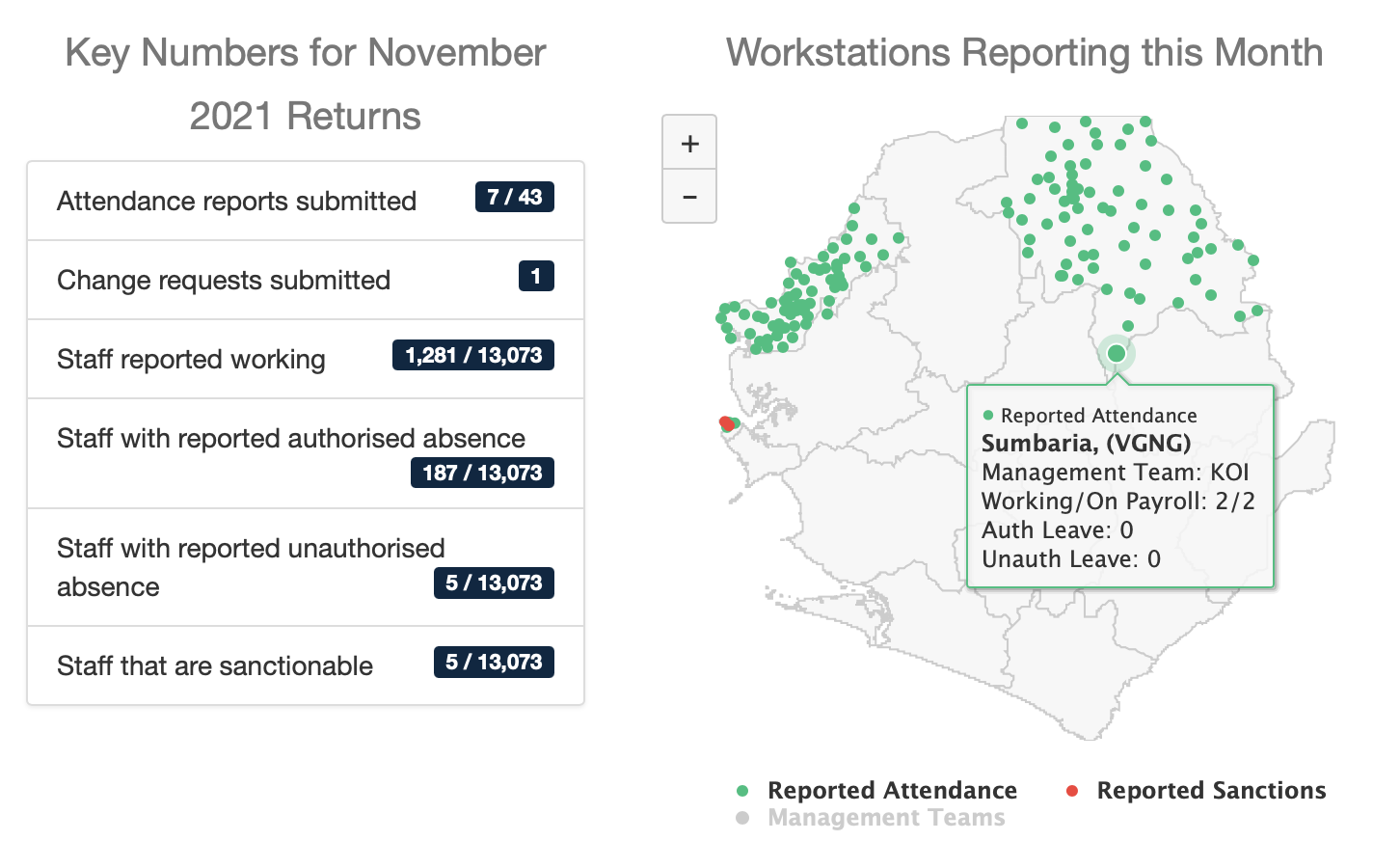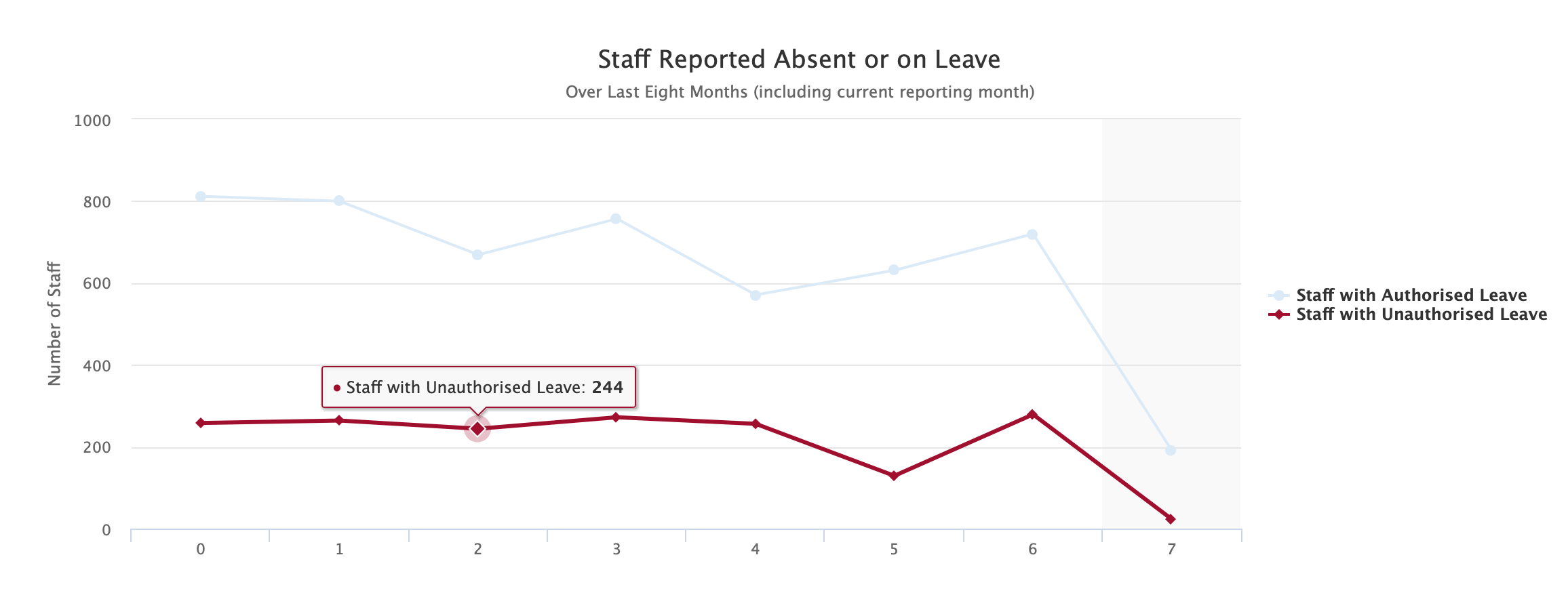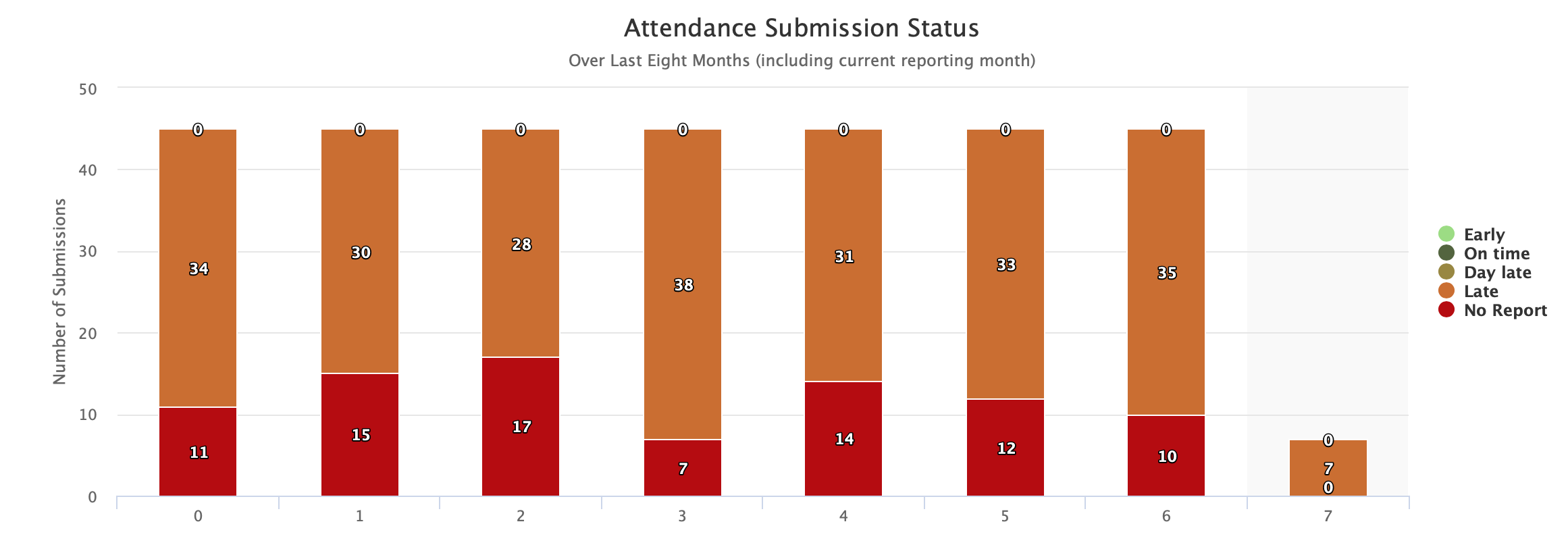Saving Lives in Sierra Leone (SLISL - Phase 1)
As part of DFID’s Saving Lives in Sierra Leone (SLiSL) programme, CGA worked with the Ministry of Health and Sanitation to strengthen workforce, payroll and attendance monitoring and management of health workers, particularly at facility- and district-levels.
| Country/Region: | Sierra Leone |
| Dates/Duration: | 2017 - 2018 |
| Funded by: | DFID |
| Clients: | Ministry of Health and Sanitation [MoHS], UNFPA-led Consortium, sub-contracted to 4M |
As part of DFID’s Saving Lives in Sierra Leone (SLiSL) programme, CGA worked with the Ministry of Health and Sanitation to strengthen workforce, payroll and attendance monitoring and management of health workers, particularly at facility- and district-levels.
We developed the real-time, at-scale https://hrhsl.org to support the monitoring of healthcare workers’ attendance, and to strengthen payroll data assurance. This supported the decentralisation of data reporting on health worker attendance to facilities and District HR officers, as well as a widely accessible cloud-based database and dashboard for managers at central- and District-levels as well as at facilities to use in informing evidence-based decision-making on workforce and payroll management.
The system provides detailed individual records and summary analysis on workforce distribution (including against staffing norms), and informs the application of the public service Sanctions Framework which sanctions pay of staff with prolonged unapproved absence, supporting the monthly verification of staff present.
Outputs and Resources
The system provides detailed individual records and summary analysis on workforce distribution, such as:
The system informs the application of the public service Sanctions Framework which sanctions pay of staff with prolonged unapproved absence, supporting the monthly verification of staff present.
CGA’s hrhsl.org data led to MoHS savings of GBP 238,156 between October 2017 and March 2018 by identifying and removing ‘ghost’ staff and sanctioning payment of staff who had prolonged absence without approval, freeing-up budget to reinvest in service delivery.
It continues to be used by the Ministry since its handover in 2018, with high and prompt reporting rates, to manage health worker attendance. This also strengthened the quantity and quality of health-worker data available to managers in facilities and at District-level to support evidence-based management and decision-making.



Expertise
Sectors:
Functional areas:
Team
-

Muniru Kawa
-

Philip Lee
-

Hannah Graham
Managing Director

